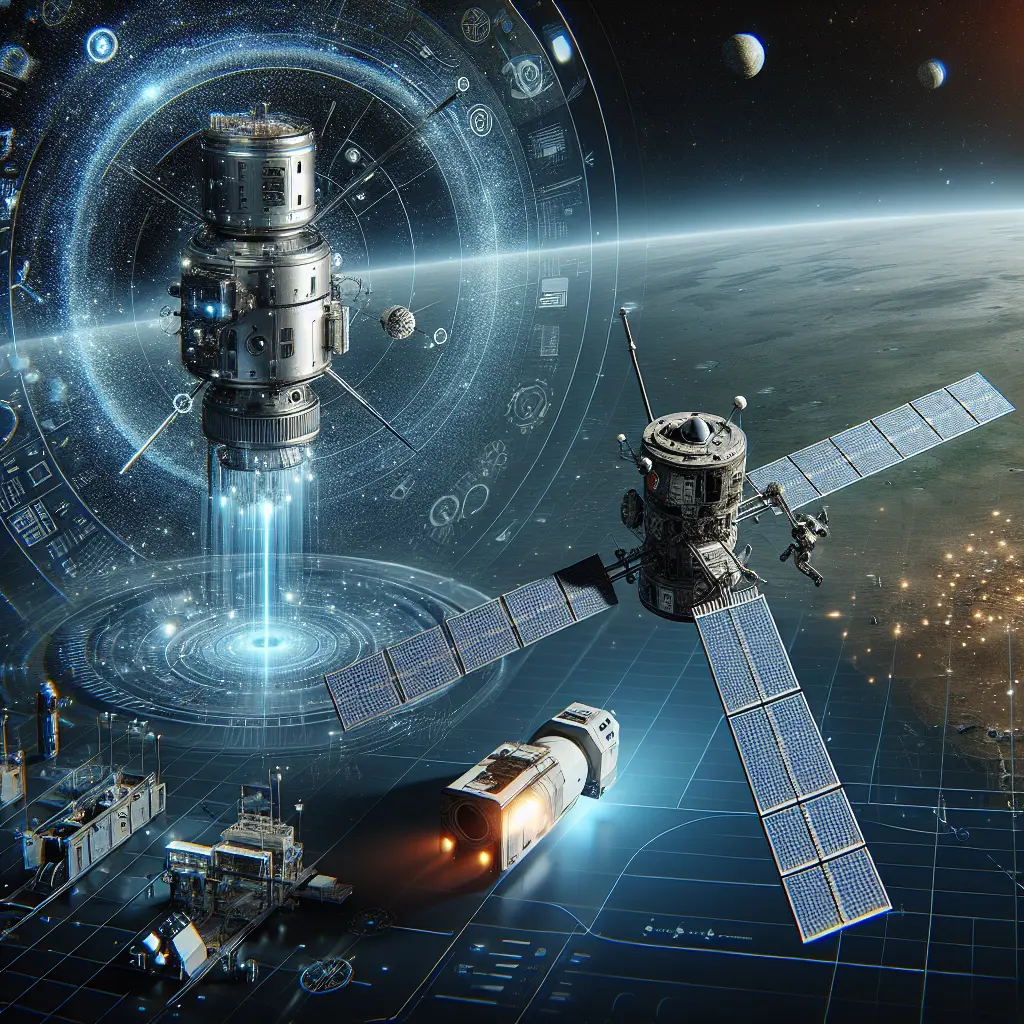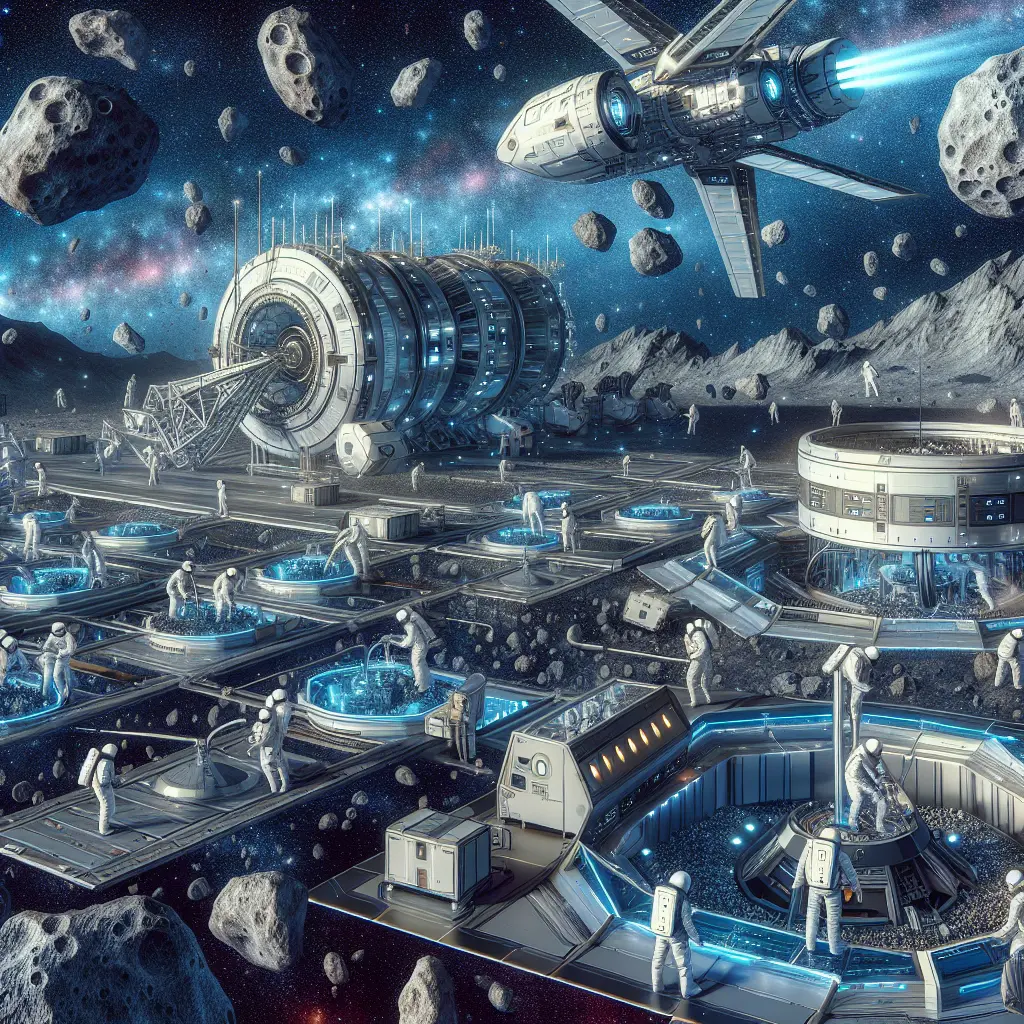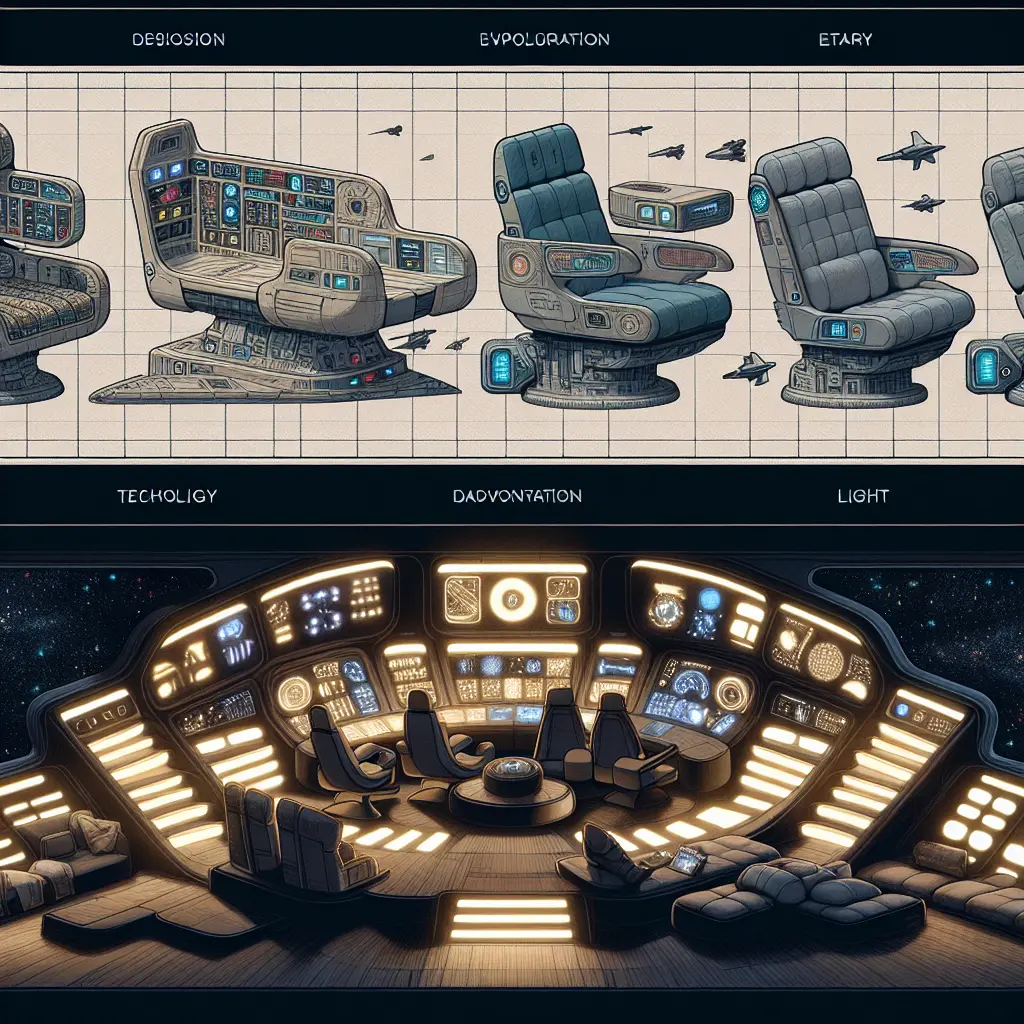In the ever-evolving landscape of the space economy, SpaceX stands at the forefront, driving revolutionary advancements in space-based manufacturing technologies. Under the visionary leadership of Elon Musk, SpaceX is not only transforming how we perceive space travel but also pioneering the future of manufacturing in space. As a leader in the commercial space industry, SpaceX innovations are paving the way for orbital manufacturing, where microgravity environments offer unique opportunities for producing advanced materials and technologies that are difficult or impossible to create on Earth.
The impact of SpaceX on the global economy is profound, as it fuels space industry growth and sets new trends in space economy dynamics. Through relentless research and development, SpaceX technology advancements are making satellite production in space a tangible reality, offering economic benefits that extend beyond terrestrial boundaries. This strategic shift towards SpaceX production in space is reshaping traditional manufacturing paradigms and introducing new possibilities for space-based industries.
SpaceX’s role in this burgeoning field is crucial, as it not only accelerates the pace of space innovation but also enhances the potential for sustainable economic benefits through advanced manufacturing technologies. With each successful mission, SpaceX contributes to the broader narrative of the future of space manufacturing, positioning itself as a key player in the global economy's expansion beyond our planet.
As we delve deeper into the specifics of how SpaceX is shaping this exciting frontier, we will explore the intricacies of its technological advancements and their far-reaching implications for both the space industry and global economic growth.
SpaceX's Role in Advancing Space-Based Manufacturing Technologies
Microgravity Manufacturing: A New Paradigm
One of the most significant advantages of manufacturing in space is the microgravity environment, which allows for the production of materials that are challenging to create on Earth. SpaceX's technology advancements have paved the way for experiments in microgravity manufacturing, where zero gravity facilitates unique processes like the development of perfect crystals and advanced alloys. This capability has immense potential for industries such as pharmaceuticals, where microgravity can lead to purer drug compounds and more effective medical treatments.
Recent news highlights SpaceX's collaboration with several research institutions to test microgravity manufacturing techniques aboard its Dragon spacecraft. These initiatives are not just experimental; they are laying the groundwork for commercial space manufacturing, promising economic benefits that extend beyond our planet.
Satellite Production in Space: A Leap Forward
SpaceX's ambitious vision includes the production of satellites directly in space, minimizing launch costs and increasing efficiency. This capability could revolutionize the space economy by reducing the dependency on Earth-bound facilities and cutting down the exorbitant costs associated with transporting materials into orbit.
Economic Impact and Industry Growth
In 2023, SpaceX announced plans to begin tests on satellite assembly modules aboard its Starship platform. This approach leverages orbital manufacturing capabilities, allowing satellites to be built and launched directly from space, thus optimizing resources and creating a more sustainable model for satellite production in space.
The SpaceX economy impact extends beyond technological advancements; it is also a catalyst for space industry growth. As SpaceX continues to lower the cost of access to space, it enables a wider range of companies to explore manufacturing opportunities in orbit. The resulting commercial space manufacturing boom is set to redefine global trade dynamics, offering new avenues for economic expansion.
For instance, SpaceX innovations in reusable rocket technology have already reduced launch costs significantly, making space more accessible than ever before. This democratization of space access is fostering a burgeoning ecosystem of startups and established companies alike, all eager to capitalize on the potential of space-based manufacturing.
At the heart of SpaceX's success in advancing space-based manufacturing is its commitment to research and development. By investing heavily in R&D, SpaceX continuously pushes the boundaries of what is possible. Recent developments in materials science, propulsion technology, and automation have all been driven by SpaceX's relentless pursuit of innovation.
SpaceX's partnership with NASA for the Artemis program further underscores its commitment to advancing space technology. By collaborating on missions aimed at establishing a sustainable presence on the Moon, SpaceX is not only contributing to the future of space manufacturing but also ensuring that these advancements have practical applications for humanity's broader ambitions in space.
Advanced Manufacturing Technologies: The Future Beckons
Elon Musk's vision for SpaceX is not limited to transportation; it encompasses a future where advanced manufacturing technologies are integral to human expansion beyond Earth. From 3D printing entire structures in space to developing autonomous manufacturing systems capable of operating independently in orbit, SpaceX is at the forefront of creating technologies that will enable a new era of industrialization in space.
Recent updates indicate that SpaceX is exploring partnerships with leading tech firms to integrate artificial intelligence into its manufacturing processes. This integration promises to enhance efficiency, reduce errors, and enable complex manufacturing tasks to be performed remotely, further solidifying SpaceX's role as a leader in the future of space manufacturing.
Implications for the Global Economy
The implications of SpaceX's advancements in space-based manufacturing for the global economy are profound. As more industries begin to leverage microgravity environments for production, we can expect shifts in global supply chains, with some processes moving off-planet for greater efficiency and lower costs.
Moreover, the environmental benefits of manufacturing in space cannot be overstated. By relocating certain polluting industrial processes away from Earth, SpaceX is contributing to a more sustainable model for economic growth, aligning with global efforts to combat climate change and preserve natural resources.
In conclusion, while we continue to watch this space unfold, it is clear that SpaceX's role in advancing space-based manufacturing technologies is pivotal. Through strategic initiatives, relentless R&D, and visionary leadership under Elon Musk, SpaceX is not only setting trends in space economy dynamics but also shaping a future where manufacturing extends beyond terrestrial boundaries, offering unprecedented opportunities for growth and innovation.
SpaceNews NASA's official siteIn summary, SpaceX's transformative role in space-based manufacturing is redefining the possibilities of industrial activities beyond our planet. By harnessing the advantages of microgravity, SpaceX is enabling the production of materials that are challenging to create on Earth, such as perfect crystals and advanced alloys, which have significant implications for industries like pharmaceuticals.







Leave a Comment